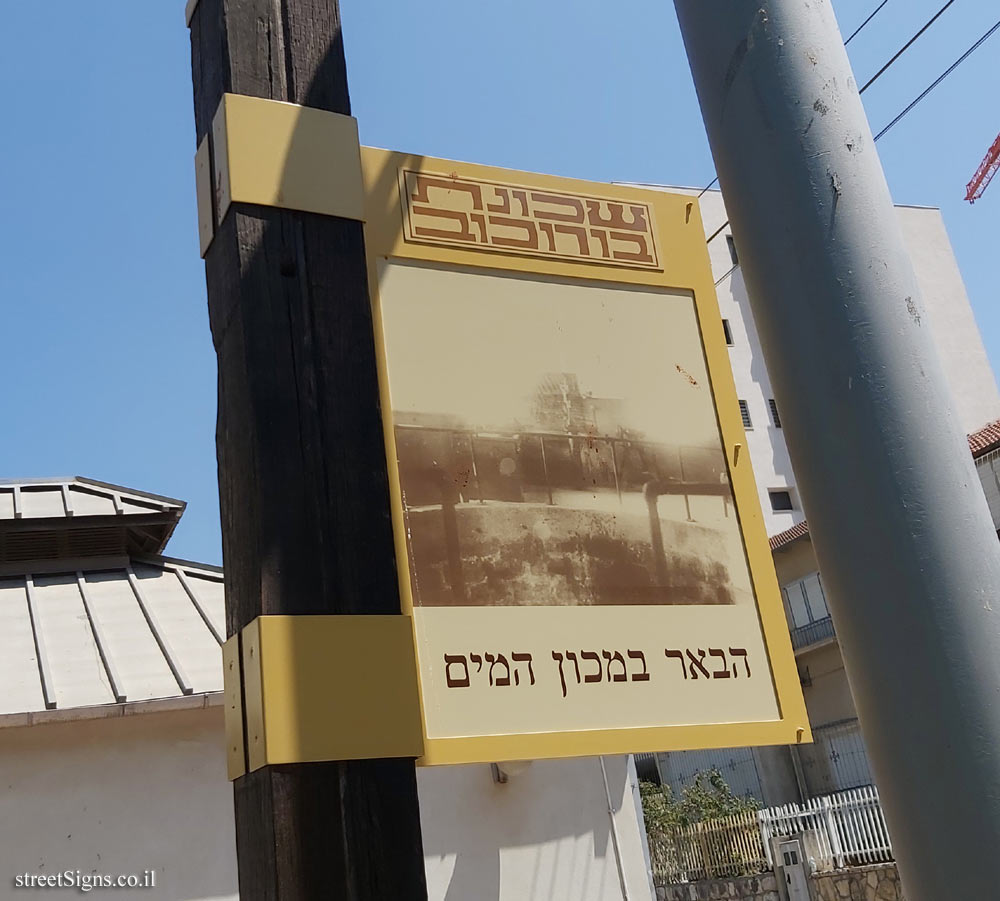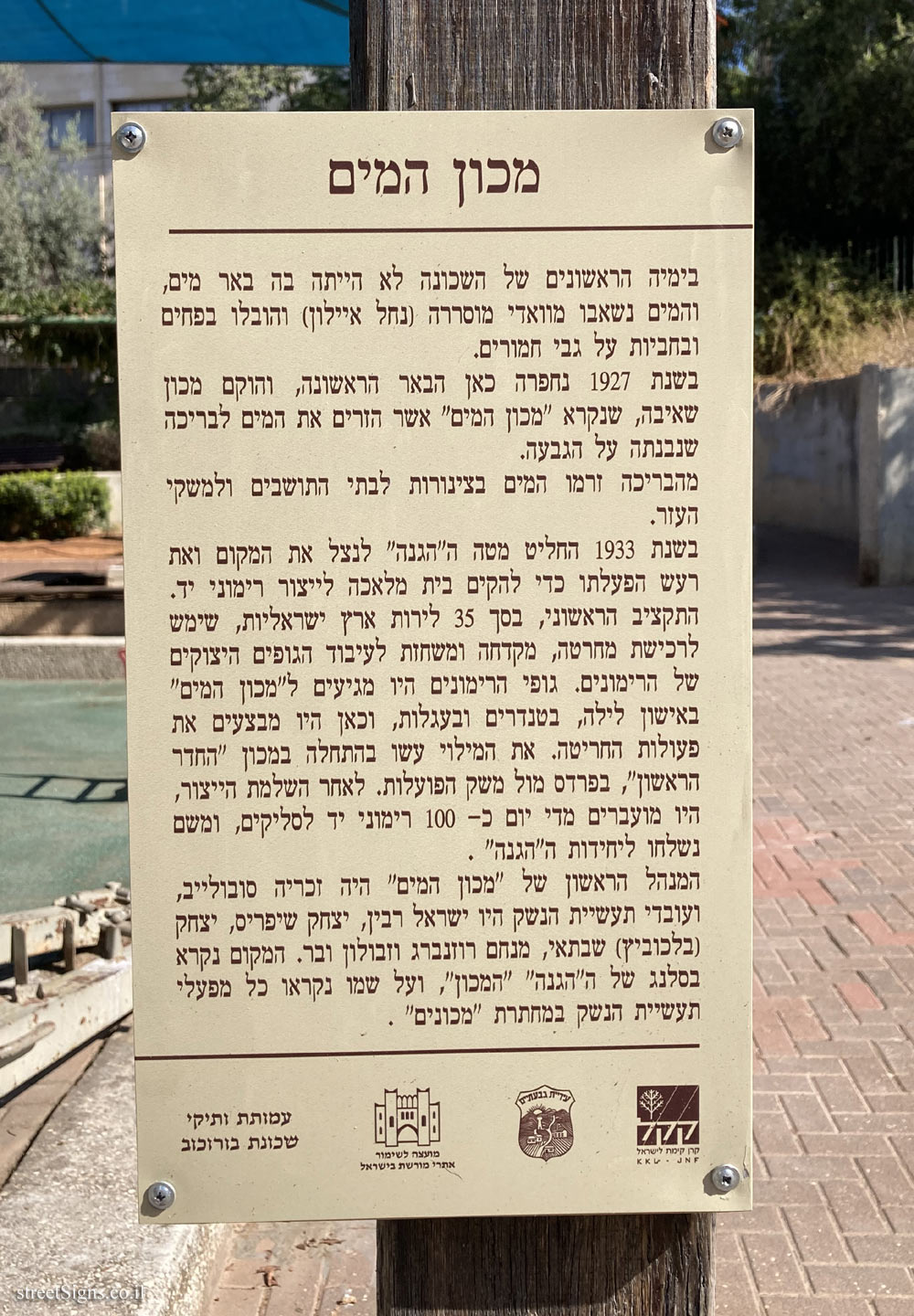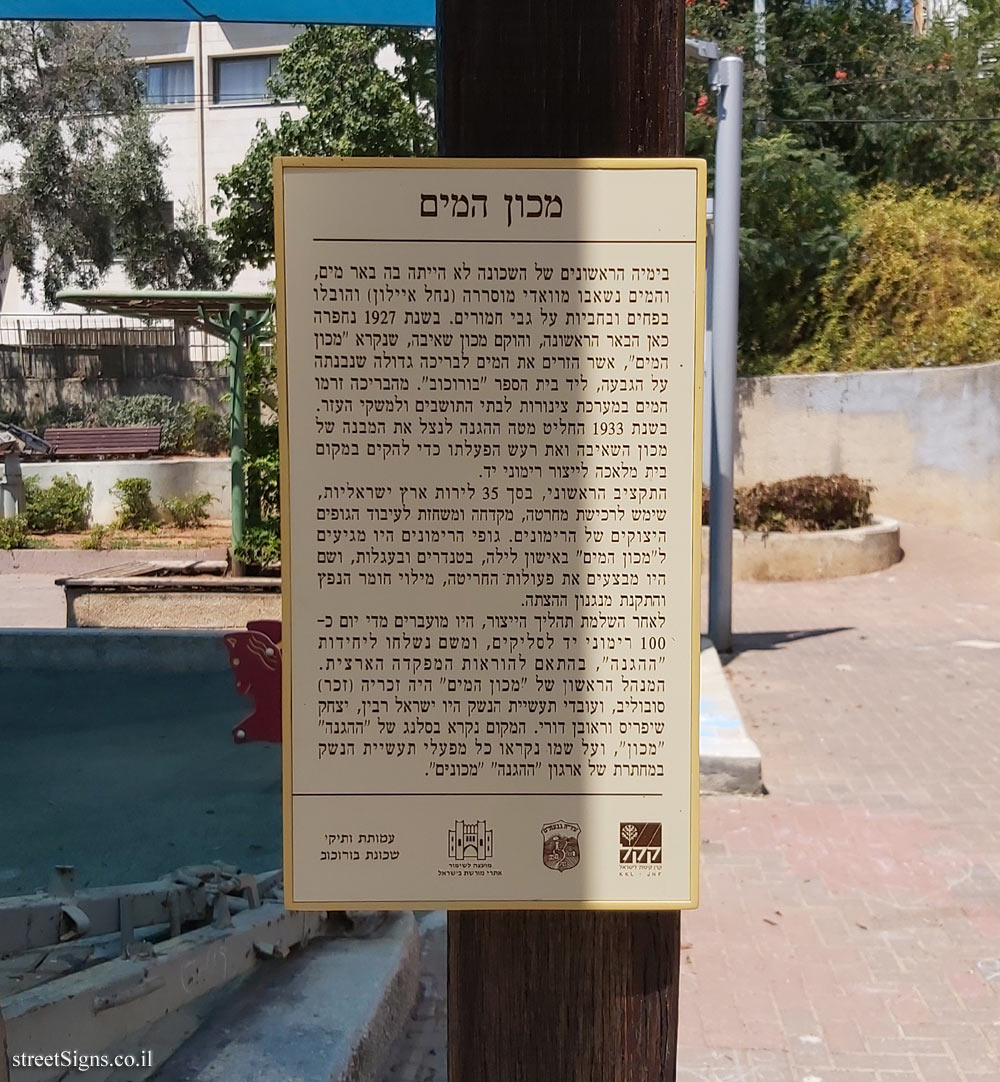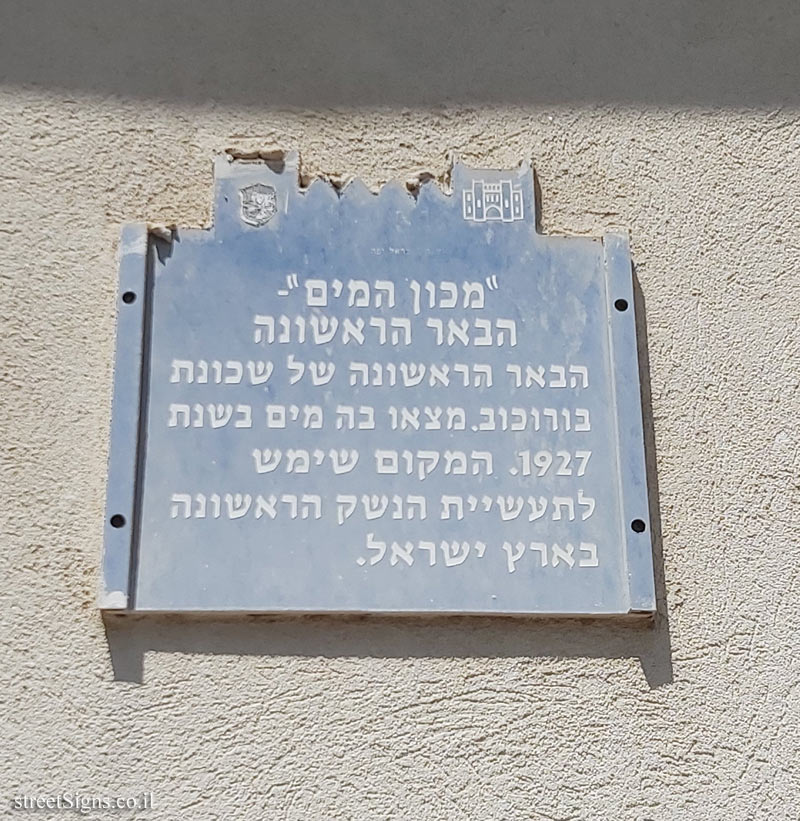A station on the ""Rishonim route", set up by a joint initiative of the Givatayim Municipality and the veterans association of Borochov neighborhood, featuring signs that mention the homes and institutions in Borochov neighborhoods.
The other side of the sign was photographed that day
 Click for a larger image
Click for a larger image The description of the place appearing on a separate sign was incorrect, in particular the names of the "Hagana" people. The daughter of one of the industrialists, got over the mistake, and managed to convince the Givataim municipality to change the sign
The description of the site appears on a separate sign (the new sign whose text appears on the site), photographed in 2022 by Liva Dror (Shabtai)
 Click for a larger image
Click for a larger image The old (and incorrect) description of the site appears on a separate sign
 Click for a larger image
Click for a larger image With the text (in Hebrew)
Water Institute
In the early days of the neighborhood, there was no well, and the water was pumped from Wadi Musrara (Ayalon River) and transported in bins and barrels on donkeys. In 1927, the first well was excavated here, and a pumping institute, called the Water Institute, was established, which injected water into a large pool built on the hill, near the Borochov School. From the pool, water in a pipeline system flowed to the residents’ homes and to the auxiliary farms. In 1933, the HQ of the Hagana decided to take advantage of the pumping station’s structure and noise to set up a hand grenade workshop.
The initial budget of 35 Israeli pounds was used to purchase lathe, drill and sharpener to process the grenades’ molded bodies. The grenade bodies would arrive at the Water Institute in the dead of night, in vans and carts, where they would perform the engraving, filling the explosive and installing the ignition.
After the production process was completed, about 100 hand grenades were shipped daily, from where they were sent to the Haganah units, in accordance with the instructions of the national headquarters. The first director of the Water Institute was Zachary (Zachar) Soboliv, and the weapons industry workers were Israel Rabin, Yitzhak Shifris and Reuven Dori. The place was named in the slang of the Haganah "Institute" and named after all the arms industry enterprises in the underground of the Haganah "Institutes".
JNF (Jewish National Fund) emblem, Givatayim emblem
Symbol of the Council for the Preservation of Heritage Sites - Israel
Veterans Association Borochov neighborhood
The well is also defined as a heritage site and appears on the site
 Click for sign's details Translation of the text on the sign
Click for sign's details Translation of the text on the sign:
Borochov neighborhood
The well at the water institute
[Site description appears on separate sign]
Water Institute
In the early days of the neighborhood, there was no well, and the water was pumped from Wadi Musrara (Ayalon River) and transported in bins and barrels on donkeys.
In 1927, the first well was excavated here, and a pumping institute, called the Water Institute, was established, called the "Water Station", which pumpedwater into a large pool built on the hill.
From the pool, water in a pipeline system flowed to the residents’ homes and to the auxiliary farms.
In 1933, the HQ of the Hagana decided to take advantage of the pumping station’s structure and noise to set up a hand grenade workshop.
The initial budget of 35 Israeli pounds was used to purchase lathe, drill and sharpener to process the grenades’ molded bodies. The grenade bodies would arrive at the Water Institute in the dead of night, in vans and carts, where they would perform the engraving, the filling was done at first at the "The First Room" institute, in the orchard in front of the Hapolot farm. After the production process was completed, about 100 hand grenades were shipped dailyto the Slikim, from where they were sent to the "Hagana" units.
The first director of the "Water Institute" was Zachary Soboliv, employees of the arms industry were Israel Rabin, Yitzhak Shifris, Yitzhak (Balchowitz) Shabtai, Menachem Rosenberg and Zebulon Weber. The place is called in the slang of the "Haganah" "the institute", and all the underground weapons industry factories were named after it "Mechanos".
JNF (Jewish National Fund) emblem, Givatayim emblem
Symbol of the Council for the Preservation of Heritage Sites - Israel
Veterans Association Borochov neighborhood

 Click for a larger image
Click for a larger image  Click for a larger image
Click for a larger image  Click for a larger image
Click for a larger image  Click for sign's details
Click for sign's details